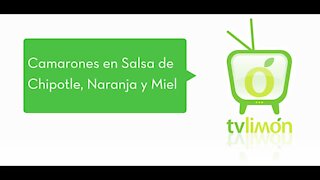How to prepare pumpkin ornaments with milk and honey
Pumpkin Benefits:
Its nutrient content is a source of antioxidants: such as; Beta-carotene; It is one of the important antioxidants in the body, as it helps to repair what was caused by oxidative stress, and it also has a role in reducing the risk of developing certain diseases. Like Alzheimer's disease, high blood pressure, heart disease, Parkinson's disease, and rheumatoid arthritis, pumpkin also contains alpha-carotene, and other antioxidants; That protect cells from damage caused by free radicals; They are unstable molecules that are produced from various biological processes in the body, and they have beneficial roles. As an anti-bacterial.
A source of fiber: which in turn slows down the rate of sugar absorption into the blood, promotes regularity of bowel movement, and improves the digestive process, as well as eating healthy fiber can help reduce the risk of colon cancer, and improve the pumpkin's fiber, potassium and vitamin C content of heart health It is worth noting that the recommended daily amount of fiber for adults ranges from 25 to 38 grams, and pumpkin is a low-calorie food rich in nutritional value, and the presence of fiber in it reduces appetite.
A source of vitamins and minerals: Pumpkin is a food that helps reduce disease and improve the health of the immune system, as one cup, or the equivalent of 245 grams of cooked pumpkin, contains 245% of the daily reference food intake of vitamin A, which in turn helps to fight infection , Viruses, and infectious diseases, as it contains approximately 20% of the recommended daily amount of vitamin C; Which may help to recover from the common cold faster, and pumpkin is a good source of vitamin E, iron, and folate, which are nutrients that improve the health of the immune system, in addition to zinc, which is also important for strengthening immunity.
A source of lutein and zeaxanthin: Pumpkin is one of the best food sources of lutein and zeaxanthin. These are two compounds linked to a reduced risk of age-related macular degeneration and cataract, and lutein can improve cognitive function, including: Learning, memory, and focus.
A source of potassium: The potassium content of pumpkin is associated with improving heart health, and consuming an adequate amount of potassium is associated with the relief of high blood pressure, a lower risk of stroke, loss of muscle mass, in addition to maintaining bone mineral density
-
 0:52
0:52
ViralHog
3 years ago $1.74 earnedCat Loves Cuddling With Pumpkin
3.21K7 -
 1:02
1:02
KiwiLimon_SeasonalRecipes_English
3 years agoCupcakes with Honey Bitumen
25 -
 0:53
0:53
KiwiLimon_SeasonalRecipes_English
3 years ago $0.01 earnedPumpkin spaghetti with avocado cream
6 -
 1:04
1:04
KiwiLimon_MexicanRecipes_English
3 years agoPumpkin Stuffed with Vegetables and Quinoa
-
 13:17
13:17
Healthy and Delicious 2020
3 years agoEasy Blueberry Cake With Pumpkin Spice Frosting
933 -
 1:45
1:45
KiwiLimon_SeasonalRecipes_English
3 years agoPumpkin Lasagna with Ham and Cheese
330 -
 1:20
1:20
KiwiLimon_SeasonalRecipes_English
3 years agoPork Loin with Mustard and Honey with Rosemary
13 -
 0:19
0:19
Barbararuzzene
3 years agopumpkin playing
661 -
 3:16
3:16
KiwiLimon_MexicanRecipes_English
3 years agoShrimp with Chipotle Sauce, Orange and Honey
13 -
 1:21:32
1:21:32
Game On!
5 hours agoStanley Cup Finals: Oilers vs Panthers Series Preview
25.2K4